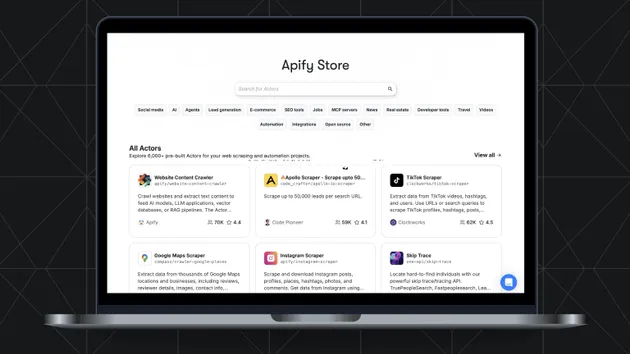Actor Testing
Pricing
Pay per usage
Actor Testing
Test your actors with varying inputs and expected outputs, duplicates, bad output fields, or unexpected log messages using Jasmine
Pricing
Pay per usage
Rating
5.0
(1)
Developer

Paulo Cesar
Actor stats
12
Bookmarked
58
Total users
0
Monthly active users
8 months ago
Last modified
Categories
Share


